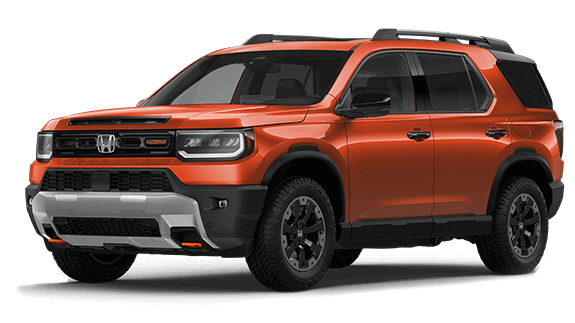Photo: Nuthawut Somsuk | iStock via Getty Images Plus
The Federal Reserve has signaled that it may cut interest rates starting in June. However, this is dependent on several economic factors, which we'll discuss in this article. For now, we're still dealing with historically high interest rates. Edmunds data indicates that new-car shoppers were financing their vehicles at 7.2% APR last month, among the highest rates in nearly 20 years. With this in mind, here is some background on how car interest rates work, what factors will cause them to go down, and how to best manage this situation.
How do automotive interest rates work?
Automotive loan APRs are tied to several factors, the most significant of which is the Federal Reserve. As the country's central banking system, the Federal Reserve sets the federal funds rate; according to Associated Press, this is the interest rate that determines what banks charge one another for borrowing money overnight. One positive side effect of high rates can be increased interest payouts on savings accounts, but anyone who takes out a loan when the rates are high will have more expensive monthly payments and pay out a higher amount of total interest.
When will interest rates go down?
The good news is that in 2024, the Federal Reserve cut interest rates from a high of 5.25%-5.5% in July 2023 to 4.25%-4.5% in December. This translated to car interest rates dropping from a high of 7.6% in October 2023 to 6.6% in December of last year. However, according to Edmunds data, those loan rates are creeping up yet again, rising to 7.2% in February 2025.
That said, the Federal Reserve has signaled that it may cut rates starting in June. However, this is largely dependent on how the Trump administration's policies and tariffs affect the overall economy. If things remain relatively stable, financial experts predict three quarter-point reductions in the policy rate by the end of 2025, according to a Reuters report. That means if you're in the market for a car, it might be a good idea to wait until the summer to start shopping around for a loan or lease to see if those interest rates drop as predicted.
Doing so could save you thousands of dollars. For example, on a common $40,000 loan financed for 72 months at 6% interest, you'll pay a total of $7,730 in interest, with a monthly payment of $662. If you financed the same loan at today's 7.2%, you'd pay $9,378 in interest alone, with a monthly payment of $686.
Is now a good time to finance a car?
With interest rates near historic highs, borrowing money is more expensive than ever. Added to today's average transaction prices, the monthly payment on your new car could be higher than you're used to from your previous loan, especially if your credit is less than stellar. One way that a salesperson will suggest to lower monthly payments is to extend the length of your loan. But keep in mind that while it seems like you might be saving money, you'll end up paying more in total since the longer a loan, the more interest you'll pay.
Another way to save money — both every month and overall — is to opt for a less expensive new car. Despite high average transaction prices industrywide, there are still some impressive and affordable vehicles that come with that new-car smell, like the Chevrolet Trax and Nissan Versa. You should also consider a used car. While our experts are predicting that inventory may be limited, used cars will still be a way to save money on purchasing a car. Just bear in mind that used car loans often come with higher interest rates than if you buy new, so if you're not paying cash, it might be a good idea to pay down your loan principal as quickly as possible.
Related articles:
Best time to buy a new car
Best time to buy a used car
Can you compare interest rates before you buy a car?
If you simply can't wait for APRs to fall, you can get preapproved for a car loan and do some comparison shopping for better rates, just like you can for new car deals. But understand that any quotes you get from banks or credit unions might cause a hard inquiry on your credit report, which can sometimes lower your credit score temporarily. Some dealers and banks allow what are called soft inquiries, which don't show up on your credit report, therefore making them a safer bet for shopping around for the best rate.
And don't forget that some new-car dealers will try to retain you as a customer through their own finance department by offering credit rebates, which cut the interest rate of the loan if you go through the automaker's financial services. If your dealer is aware you're looking around for a cheaper loan, it may be willing to provide you with cash or APR incentives to ensure you finance with them instead.
Related articles:
How to Get a Car Loan
Buying a Car When Interest Rates Are High


.jpg) by
by  edited by
edited by 
